
Kód: 01375972
Imposters
Autor Collins, Chris (Professor, New York University), Postal, Paul M. (Professor, New York University)
Normally, a speaker uses a first person singular pronoun (in English, I, me, mine, myself) to refer to himself or herself. To refer to a single addressee, a speaker uses second person pronouns (you, yours, yourself). But sometimes ... celý popis
- Jazyk:
 Angličtina
Angličtina - Vazba: Pevná
- Počet stran: 284
Nakladatelství: MIT Press Ltd, 2012
- Více informací o knize

256 Kč
Dostupnost:
50 % šance Máme informaci, že by titul mohl být dostupný. Na základě vaší objednávky se ho pokusíme do 6 týdnů zajistit.
Máme informaci, že by titul mohl být dostupný. Na základě vaší objednávky se ho pokusíme do 6 týdnů zajistit.Prohledáme celý svět
Mohlo by se vám také líbit
Dárkový poukaz: Radost zaručena
- Darujte poukaz v libovolné hodnotě a my se postaráme o zbytek.
- Poukaz se vztahuje na celou naši nabídku.
- Elektronický poukaz vytisknete z e-mailu a můžete ihned darovat.
- Platnost poukazu je 12 měsíců od data vystavení.
Informovat o naskladnění knihy
Zadejte do formuláře e-mailovou adresu a jakmile knihu naskladníme, zašleme vám o tom zprávu. Pohlídáme vše za vás.
Více informací o knize Imposters
Nákupem získáte 26 bodů
 Anotace knihy
Anotace knihy
Normally, a speaker uses a first person singular pronoun (in English, I, me, mine, myself) to refer to himself or herself. To refer to a single addressee, a speaker uses second person pronouns (you, yours, yourself). But sometimes third person nonpronominal DPs are used to refer to the speaker--for example, this reporter, yours truly--or to the addressee--my lord, the baroness, Madam (Is Madam not feeling well?). Chris Collins and Paul Postal refer to these DPs as imposters because their third person exterior hides a first or second person core. In this book they study the interactions of imposters with a range of grammatical phenomena, including pronominal agreement, coordinate structures, Principle C phenomena, epithets, fake indexicals, and a property of pronominal agreement they call homogeneity. They conclude that traditional ideas about pronominal features (person, number, gender), which countenance only agreement with an antecedent or the relation of the pronoun to its referent, are much too simple. They sketch elements of a more sophisticated view and argue for its relevance and explanatory power in several data realms. The fundamental proposal of the book is that a pronoun agrees with what they call a source, where its antecedent constitutes only one type of source. They argue that the study of imposters (and closely related camouflage DPs) has far-reaching consequences that are inconsistent with many current theories of anaphora.
 Parametry knihy
Parametry knihy
Zařazení knihy Knihy v angličtině Language linguistics Grammar, syntax & morphology
256 Kč
- Plný název: Imposters
- Podnázev: A Study of Pronominal Agreement
- Autor: Collins, Chris (Professor, New York University), Postal, Paul M. (Professor, New York University)
- Jazyk:
 Angličtina
Angličtina - Vazba: Pevná
- Počet stran: 284
- EAN: 9780262016889
- ID: 01375972
- Nakladatelství: MIT Press Ltd
- Hmotnost: 534 g
- Rozměry: 159 × 234 × 18 mm
- Datum vydání: 16. March 2012
Oblíbené z jiného soudku
-

Latin Grammar
250 Kč -

Metaphors We Live By
361 Kč -

Successful Writing
670 Kč -

Longman's Student Grammar of Spoken and Written English Paper
969 Kč -

Woe Is I
397 Kč -

McGraw-Hill's Conversational American English
547 Kč -
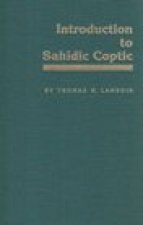
Introduction to Sahidic Coptic
1552 Kč -
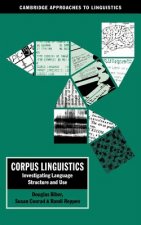
Corpus Linguistics
1864 Kč -

Construction Grammar and its Application to English
750 Kč -

Introduction to Attic Greek
1343 Kč -

NTC's Dictionary of Phrasal Verbs
1245 Kč -

Introducing Syntax
817 Kč -

Norwegian: A Comprehensive Grammar
2413 Kč -

Conditionals and Prediction
1661 Kč -

Introduction to English Syntax
717 Kč -

Student's Introduction to English Grammar
1027 Kč -

Making Sense
276 Kč -

English for Presentations at International Conferences
907 Kč -

Icelandic
1945 Kč -

Introduction to English Morphology
602 Kč -

English Syntax
1728 Kč -

International Investment Arbitration
3249 Kč -
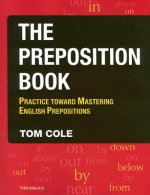
Preposition Book
834 Kč -

English for Academic Correspondence
1036 Kč -
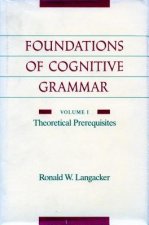
Foundations of Cognitive Grammar
1300 Kč -

Essentials of Cognitive Grammar
1458 Kč -

Possession
1257 Kč -

Oxford Handbook of Grammaticalization
5853 Kč -

Interactive Vocabulary
1632 Kč -

Dynamic Antisymmetry and the Syntax of Noun Incorporation
3313 Kč -

Norwegian: A Comprehensive Grammar
5474 Kč -

Language of Humor
1097 Kč -

Somali Grammar
768 Kč -

Halliday's Introduction to Functional Grammar
1857 Kč -

Morphology
853 Kč -
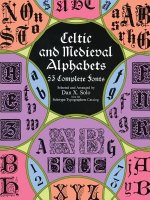
Celtic and Medieval Alphabets
321 Kč -
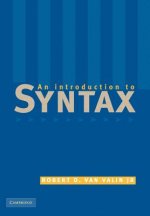
Introduction to Syntax
1372 Kč -

A Grammar of Gurindji
903 Kč -

Construction Morphology
1866 Kč -

Everything that Linguists have Always Wanted to Know about Logic . . . But Were Ashamed to Ask
2135 Kč -

English Grammar
987 Kč -

Top 50 Grammar Mistakes
880 Kč -

Pacific Languages
1300 Kč -
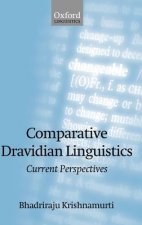
Comparative Dravidian Linguistics
2556 Kč -

Rethinking Morphology
661 Kč -

Pali Grammar for Students
1088 Kč -

Cognitive Approaches to Pedagogical Grammar
8635 Kč -

Erromangan (Sye) Grammar
1684 Kč -

Kankanaey
1036 Kč
Osobní odběr Praha, Brno a 12903 dalších
Copyright ©2008-24 nejlevnejsi-knihy.cz Všechna práva vyhrazenaSoukromíCookies



 Vrácení do měsíce
Vrácení do měsíce 571 999 099 (8-15.30h)
571 999 099 (8-15.30h)